Who won, who's celebrating?
- Published
18:22
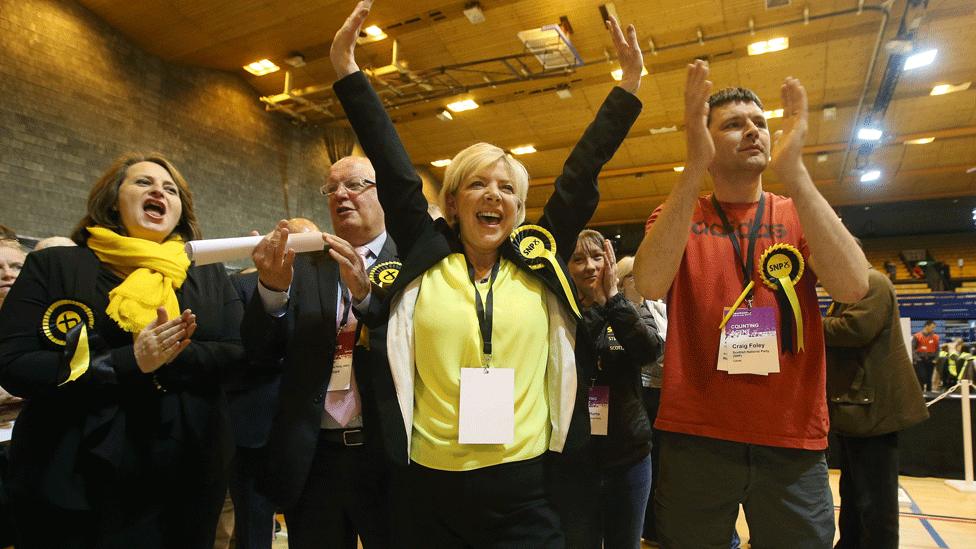
The SNP celebrated at the Edinburgh City Council count
What to conclude? The SNP have clearly won the local elections in Scotland. They have more seats and more councils where they are the largest party than any of their rivals.
But the Tories have also made big gains - while Labour has slipped back badly. The Conservatives, therefore, can also be counted as winners, in terms of momentum.
Let's talk numbers in more detail. There have been boundary changes which mean that some comparisons are made with "notional" outcomes in 2012, the last time these councils were contested.
On that count, the SNP are notionally down by a fractional seven seats. However, in terms of absolute numbers, the Nationalists have ended up with more councillors than in 2012.
Plus the SNP are the largest party in Scotland's four largest cities - including Glasgow, where jubilant supporters attended their ousting of Labour. They have waited decades for that.
The Conservatives registered gains pretty well everywhere in Scotland, although without taking charge of any council. Indeed, Scotland is now No Overall Control territory - with the exception of the Highlands and Islands where the Independents hold sway.
The Liberal Democrats mostly held steady - although, sometimes, that was from a decidedly low existing base. But they drew attention to relatively good results in areas where they have Westminster election hopes.
The Greens added seats - and were content with that.
And Labour? They lost seats everywhere. They lost ground everywhere. They lost control of the councils they held. The response? Kezia Dugdale said she would put on her trainers and get out campaigning for the UK General Election.
As will all the leaders. Footware optional.
15:55
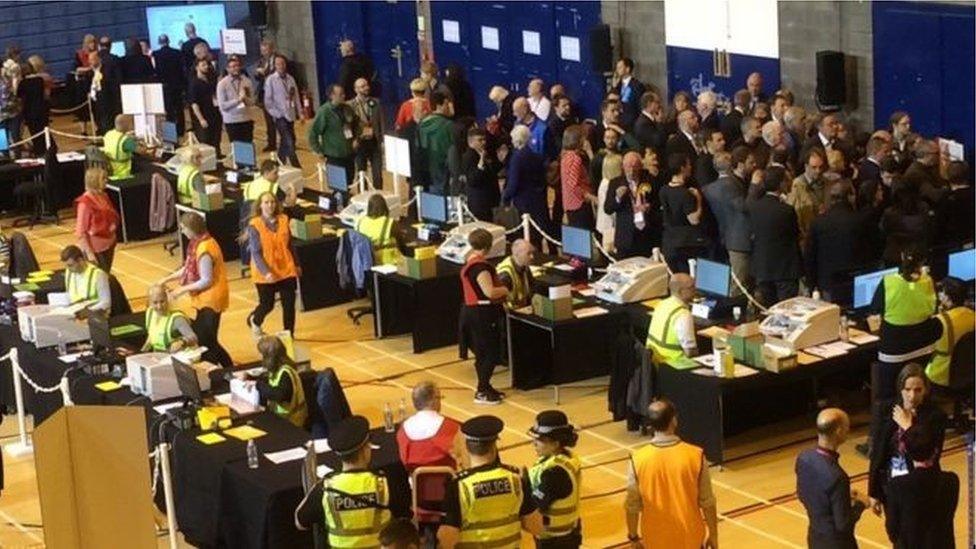
The pattern continues in the capital. Tories make gains - but so do the Liberal Democrats and the Greens.
SNP down a bit, Labour down a lot. SNP largest party.
But, once again, No overall control. Hung politics everywhere.
15:10
...... And another thing. With the exception of the islands councils - Orkney, Shetland, Comhairle - all Scotland's local authorities thus far have registered No overall control. Stand by for bargaining, made much more difficult by advance statements and by the pending UK election.
14:50
You've heard of the West Lothian question. Here's the East Lothian question. Which is the only council in Scotland, thus far, to register an increase in Labour seats?
Yes, it's East Lo….. but you were ahead of me there. Everywhere else Labour has suffered a decline, a slump in seats Scotland-wide.
For the SNP, it's half and half - up in a bunch of councils, down in others. They will be happy with progress in Aberdeen - and, as a developing picture, in Edinburgh and Glasgow. They will be less than content at losing ground and overall control in Dundee.
The Liberal Democrats are mostly as is, in terms of seats. Although, rather too often for their liking, that's stasis at a very low level
13:45
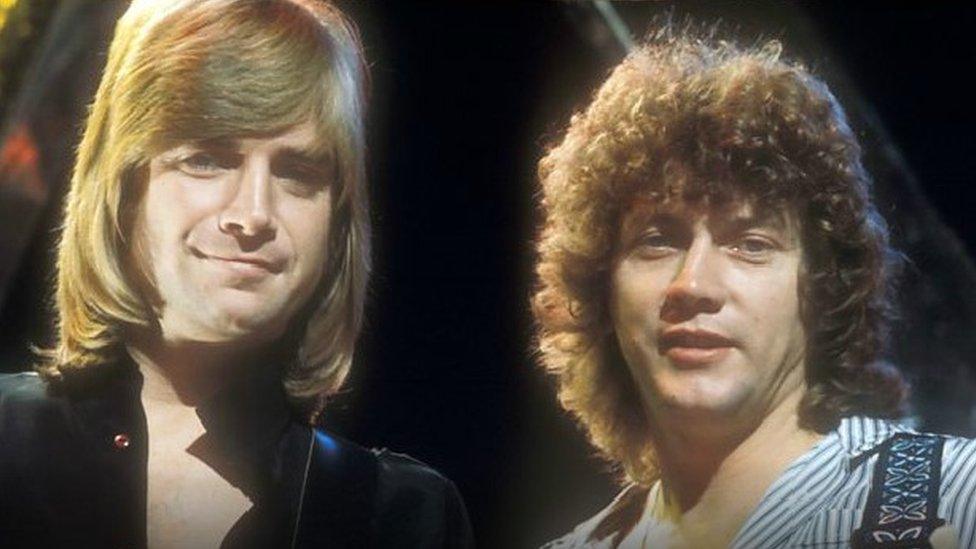
Is it going to be a question of balance, to borrow an album title from the Moody Blues (look them up, they were rather good)?
The SNP is recording gains in various councils - but the Tory advance is consistent.
For example, in Aberdeen, the SNP put on seats to become the largest party. The Conservatives put on even more to push Labour into third place.
This probably reflects the nature of contemporary political discourse in Scotland, defined as it is by attitudes to independence as well as the UK-wide topic of Brexit.
The SNP have made substantial gains in recent elections, most notably in the 2015 UK General.
The Conservatives have, deliberately and precisely, sought to counter that by projecting themselves as the most formidable defenders of the Union, edging out their rivals.
Remember too, that the Scottish Tories used to stand under the banner of the Unionists. Without changing their name back, they are now doing so again.
Days of Future Passed.
12:13
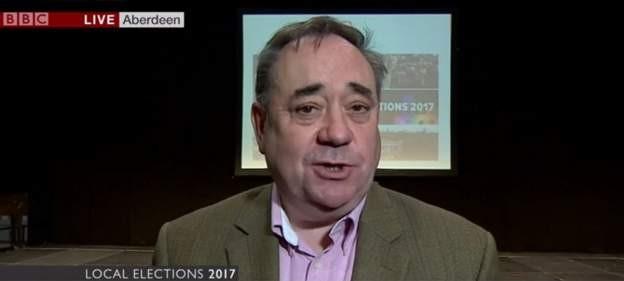
Further signs, then, of Conservative advance. But, while reflecting upon that apparent trend, let us not forget two other elements.
It still appears that the SNP will finish as the largest party in terms of votes and seats.
Indeed, their former leader Alex Salmond is forecasting just that, to counter the image of a Conservative advance.
And, secondly, let us not forget the Independent councillors who make up a large element of our local democracy.
Orkney and Shetland have already completed their declarations, with the independents to the fore. The Greens took a seat in Orkney and the SNP one in Shetland.
11:50
Politics is rarely pure and never simple. Consider the situation now confronting the Scottish National Party in Clackmannanshire.
In basic terms, they remain the largest party, but with a minority.
But the Wee County has also reflected the emerging trend across Scotland.
The Tories have put on seats. Labour have lost seats. Result: No overall control.
In seeking for a coalition or a method of governing, that is more a dilemma than a choice for the largest party.
11:35
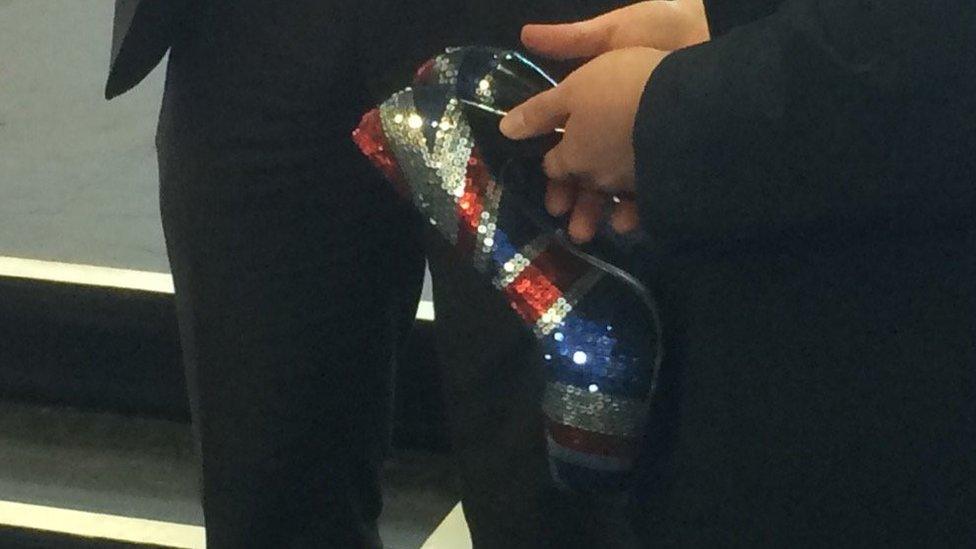
And as the results come in, an early picture emerges of Conservative gains. First indications only, of course, but signs of an advance.
The cause? Ask the elected Tory councillor in North Lanarkshire, Megan Gallacher, who displayed her Union Jack shoes with a certain degree of pride.
11:22
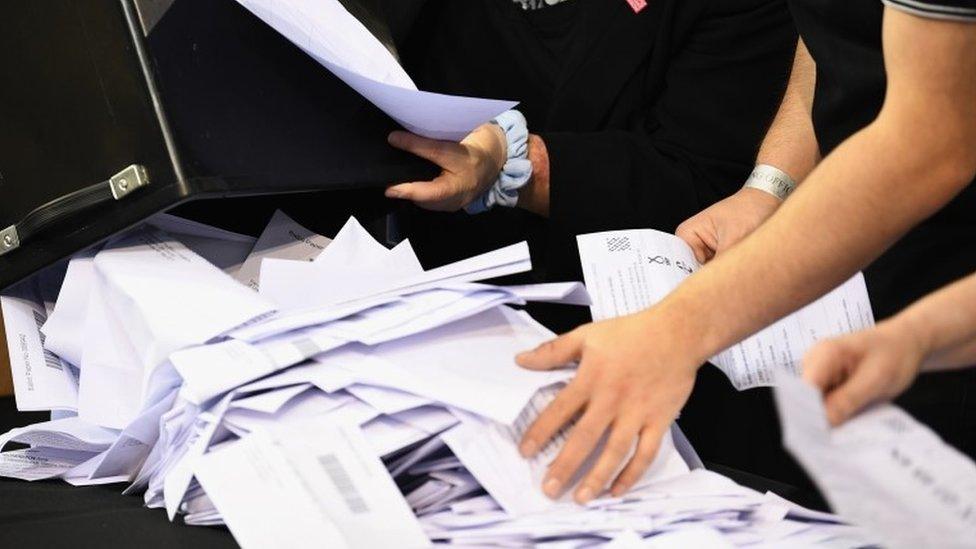
And so the first results are emerging from the local elections in Scotland. They will be scrutinised with particular vigour by political apparatchiks. For three reasons.
One, the results themselves. It matters who is in charge of local democracy, in local areas. Councils may gripe about their relative lack of power - but they still have clout.
Over education, over social care, over the allocation of resources and, above all, over planning - a much neglected but utterly crucial element of council responsibility.
Secondly, the results, when they emerge, will offer a pointer to the UK General Election on 8 June. Will Scotland replicate, locally, the picture from England and Wales of an increase in Conservative support? If so, how will that translate to the votes for Westminster seats?
Caveats, of course. Differential turnout. Different motivations for voting. Different elections. But momentum - or slide - today may point to a similar, although not identical, pattern next month.
Thirdly, candidates and agents for 8 June will be studying the ward by ward voting patterns which emerge, helping them to form a picture of where to deploy their canvassing strength for the next month.